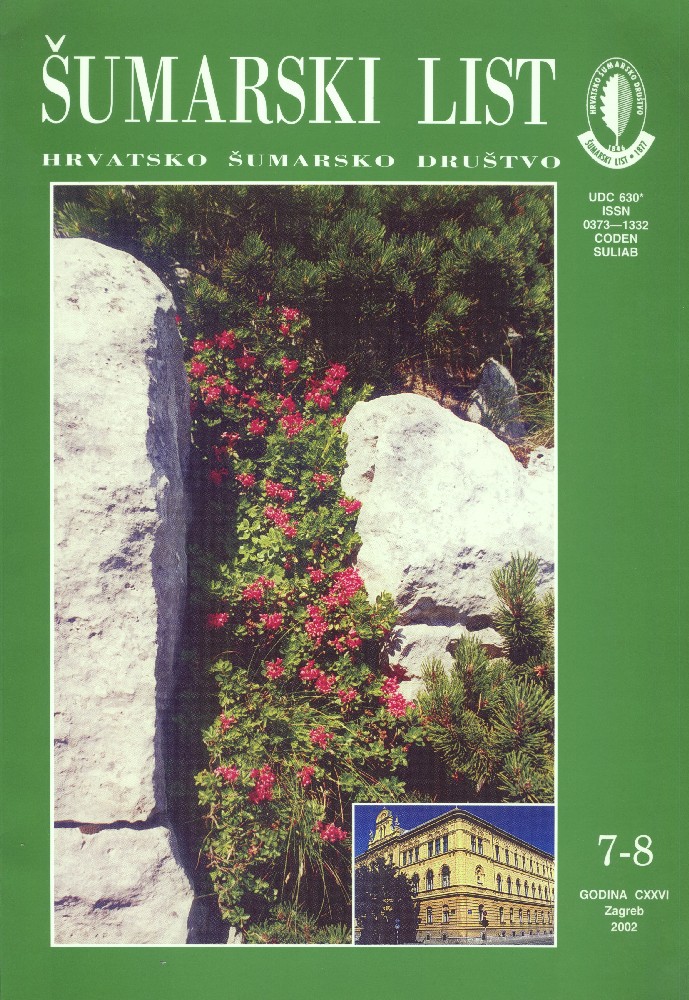| |
| UVODNI ČLANCI |
| |
|
|
| Klepac, Dušan | UDK 630* 902 (Quercus robur L.) |
| Pedunculate Oak - Insights
PDF
HR
|
359 |
| |
| PREGLEDNI ČLANCI |
| |
|
|
| Grubešić, M., Vodolšak, M., Križaj, D. | UDK 630* 156 |
| Structure Analysis of Hunters in the Range of the Krapina-Zagorje County
pdf
HR
EN
|
361 |
| Sabadi, R. | UDK 630* 904 |
| GREECE: A Survey of Forestry and Forest Industries
pdf
HR
EN
|
367 |
| |
| STRUČNI ČLANCI |
| |
|
|
| Zelić, J. | UDK 630* 524 |
| The Application of the Hohenadel Method for the Control of Stand Volume Account and the Provisional Volume Tariff of the Forest Association
pdf
HR
EN
|
391 |
| Domac, J., Jakopović, M., Risović, S. | UDK 630* 839 742 |
| European Bio-fuel Exchange in Croatia
pdf
HR
EN
|
401 |
Summary: Biomass trade is not from recently a well-established business in developed European countries and a subject of trade even between countries like Canada and Sweden. For connecting buyers and suppliers in Europe has been established a dedicated institution, European Biomass Exchange (EBEX), which makes all necessary arrangements and takes care for whole process of fuel delivery. Since last year, EBEX expressed their interest in introducing their activities in Croatia and total amount of biomass, which could be bought in Croatia could be as much as 100 000 tons.As a part of project preparation phase, Energy Institute ´Hrvoje Požar´ and Croatian Chamber of Commerce conducted a detailed analysis of the available amount and possible requested price for biomass in Croatian wood industry. Analysed were all relevant factors as annual production and capacity, amount of generated wood waste, current usage of wood waste (own boiler room, briquetting, selling, composting, disposal and similar) and price, what could be requested for biomass. The interview was carried out during 2001, and given results show significant, yet unused energy potential of wood waste in Croatia as well as high level of issues understanding and industrial readiness to participate in this project.
Preliminary activities also showed that transport is a significant cost factor for biomass and at the moment, a bottleneck for successful project realisation. The transport of small amounts is more expensive in relation to the transport of larger amounts. The transport method (lorry) should be as fully utilised as possible. However, a successful realisation of this project could in long run contribute to development of Croatian biomass market and facilitate realisation of biomass use projects in the country.
|



